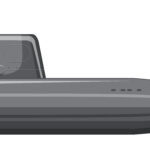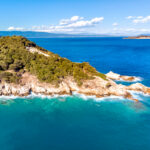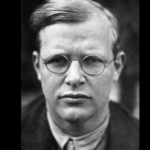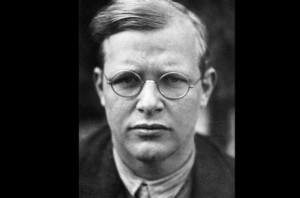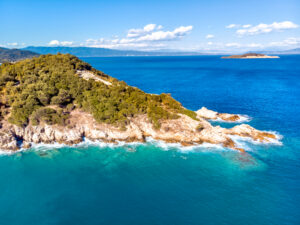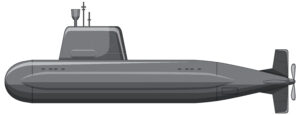
New dwellers of the Mediterranean, Mediterraneo!!
The movie
Released in 1992, the film Mediterraneo emerges as a poignant cinematic achievement directed by Gabriele Salvatores. Set against the backdrop of World War II, the film presents a captivating exploration of the human experience amid the chaos of conflict. Salvatores, known for his ability to intertwine humor with deep emotional currents, effectively utilizes the Mediterranean setting not only as a geographical location but also as a thematic canvas that captures the essence of serenity and turmoil.
The narrative follows a group of Italian soldiers who find themselves stationed on a remote Greek island during the war. This unexpected environment becomes a transformative space where the harsh realities of war intersect with the alluring tranquility of island life.
The film delves into themes of escapism, camaraderie, and the juxtaposition of beauty and devastation, reflecting how the historical context of World War II profoundly impacts the characters’ journeys. The soldiers’ experiences foster profound relationships, pushing them to confront their desires, fears, and the shared humanity that transcends the devastation of war.
Mediterraneo received considerable acclaim upon its release, securing the Academy Award for Best Foreign Language Film in 1992. This accolade not only celebrated the film’s artistic excellence but also highlighted the significance of Italian cinema on a global scale.
Main Characters and Their Journeys
Stranded on a secluded Greek island, these characters undergo significant personal transformations that reflect their varying backgrounds and attitudes towards life, war, and each other.
The group is led by Captain Giuseppe, a stickler for military discipline who finds himself increasingly overwhelmed by the absurdities of war. As the narrative unfolds, Captain Giuseppe’s rigid demeanor softens, revealing a more compassionate side influenced by the simplicity and beauty of island life. His internal struggle showcases the conflict between duty and humanity, embodying a pivotal theme of the film.
Partner Boost
Sergeant Antonio, a charismatic and humorous character, serves as a contrast to Captain Giuseppe. Initially carefree and optimistic, his experiences on the island challenge his worldview, compelling him to face the brutal realities of conflict. Antonio’s evolving relationship with the local villagers highlights the theme of connection amidst chaos, as he learns to appreciate the deeper bonds that transcend language and culture.
Other notable characters include the cynical soldier, Salvatore, who grapples with disillusionment, and the timid recruit, Luigi, representing innocence and vulnerability. Their interactions with one another and the locals illustrate a spectrum of human emotion, from camaraderie to loneliness, ultimately emphasizing the absurdity and randomness of war.
The islanders themselves play a crucial role in shaping the soldiers’ experiences. Their resilience and warmth offer a stark contrast to the harsh realities of the soldiers’ backgrounds, enhancing the film’s exploration of human connection.
The Plot: From War to Serenity
The film “Mediterraneo” begins during World War II when a group of Italian soldiers is dispatched to a seemingly deserted Greek island in the Aegean Sea. Their mission is to secure the area, though as the story unfolds, it becomes clear that the war is a distant backdrop to the island’s serene beauty and the soldiers’ transformative journey.
The weight of duty hangs heavily on their shoulders as they prepare for engagement, fully expecting the chaos of battle. However, the island presents a stark contrast to their expectations.
АКЦИЯ ДЛЯ НОВЫХ ПОЛЬЗОВАТЕЛЕЙ! Сэкономьте 20% от первого заказа с промокодом HELLO20. Только для новых клиентов. Максимальная скидка до 2K ₽.
As the soldiers begin to settle into their new environment, the narrative intricately showcases their interactions with the locals as well as their adaptation to the slow, peaceful island life. The soldiers strike friendships with the villagers, sharing stories and cultural exchanges that deepen their understanding of the island’s traditions.
Key events, such as the soldiers participating in local celebrations, mark a turning point where they slowly shed the weight of their wartime duties. Their perspective shifts from one defined by conflict to one embracing serenity.
Through the unfolding of everyday moments and the nurturing of human connections, the film demonstrates how the soldiers’ experiences alter their outlook. The opportunities for reflection and personal growth enable them to confront their inner turmoil, fostering a profound appreciation for life outside the battlefield.
Themes and Interpretation
Through the experiences of the soldiers stationed on a small Greek island during World War II, the film critiques the senselessness of conflict, portraying the irony of their situation. The juxtaposition of war’s chaos against the serene and idyllic Mediterranean setting amplifies the message that human life continues amid turmoil, highlighting the bizarre nature of humanity’s proclivity for violence.
Another significant theme is the search for human connection. The characters in ‘Mediterraneo’ find solace in forming bonds with one another, despite their disparate backgrounds and motivations. The film illustrates how wartime circumstances can lead to unexpected friendships, as the soldiers grow to rely on one another while navigating the challenges of their environment.
Furthermore, ‘Mediterraneo’ explores the delicate balance between conflict and peace. The narrative draws a compelling parallel between the external chaos of war and the internal peace that the characters seek. Through visually stunning cinematography and poignant storytelling, the film subtly communicates that true tranquility is achieved, not through the absence of conflict, but rather through the cultivation of relationships and personal introspection.
Share this content:






